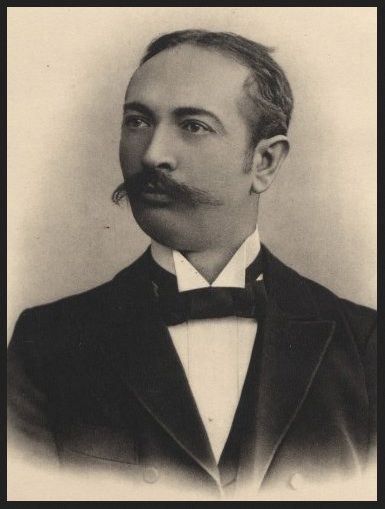Józef Piłsudski in German prisons

Meanwhile the revolution was also raging in Magdeburg and communications with other parts of Germany were in danger of being severed. Everything happened in a rush. The two Poles only had time to take what they needed. Their remaining belongings were later to be forwarded to them (the manuscript of the book “My First Battles” did not reach Piłsudski until 1924). The liberated prisoners and Count Kessler were picked up in a car by Major Paul van Gülpen, then head of transport. In his report on the event published in 1936, van Gülpen presumably concealed the role of Kessler, because Kessler was no longer welcome in the Third Reich after his exile in 1933 or because he wanted to emphasize his own contribution in releasing the leading icon of the neighbouring country.
It was difficult for anyone to get into the fortress, and here a resolute and courageous female stenographer accompanying van Gülpen, proved to be extremely helpful.
“The streets were full of angry crowds”, recalled van Gülpen. “The stenographer, who tried to lead the vehicle over the river bridge to the citadel, pressed a few pieces of cloth to the car and screamed as if her skin had been burnt off: Move over, move over! We're on our way to the citadel to free political prisoners!”
After meticulous preparation, van Gülpen received permission from the military authorities to travel by car from Magdeburg to Berlin (no train journey was possible because of the revolution). He had spare wheels and firearms with him in his Audi, and the spare wheels in particular were to prove their worth. Travellers often had to stop and change their “war wheels” because they were so poor in quality. Van Gülpen recalled the episode as follows:
“During the journey Piłsudski was given the chance of discovering the glamour and misery of being a motorist. At the time pneumatic tyres were only available as surrogates in Germany, and tyres were said to be filled with a mush of rotten potatoes. As long as they didn't heat up it was very comfortable, but as soon as your speed exceeded 40 km/h, the heat swelled the mash, causing the tyres to burst. The car immediately came to a halt, leaving stinking potato pancakes lying around in the road over the last twenty metres. When such an accident happened in the middle of a village, dogs would run out from all directions and throw themselves on the burnt potato remains, before uttering howls of pain and running away with burnt mouths.”
On the way the travellers had a morning break in the small town of Genthin, before arriving in Berlin on the evening of 8th November where they made a brief stop at van Gülpen's apartment at Reichstrasse 9 for cognac and an entry in the guest book. Here the etiquette of the aristocratic pre-revolutionary world, in which officers, even among enemies, were initially gentlemen, still applied. The former prisoners then moved into an apartment on the first floor of the luxurious Hotel Continental in Neustädtische Kirchstrasse.




![Flyer to protest against the illegal internment of Piłsudski, 1917 Flyer to protest against the illegal internment of Piłsudski, 1917 - Flyer: On Sunday 29th of this month we will gather in front of the Adam Mickiewicz Monument at 11 am to protest against the illegal internment of Commander Józef Piłsudski and Chief of Staff of the First Brigade, Lieutenant Colonel [Kazimierz]. Sosnkowski](/sites/default/files/styles/width_100_tiles/public/assets/images/obywatele-obywatelki-inc-dnia-29-bm-w-niedziele-zbieramy-sie-o-godz-11-rano-na-0_kopie.jpg?itok=hxoxe_Lq)














































